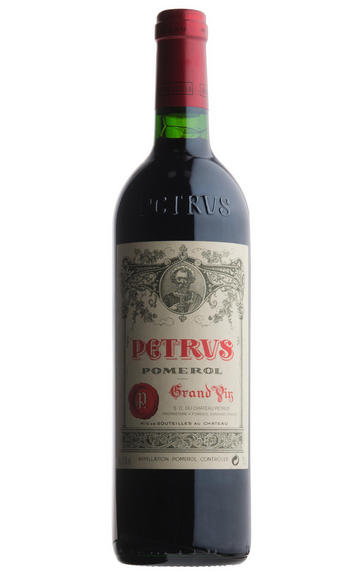
2008 Petrus, Pomerol, Bordeaux
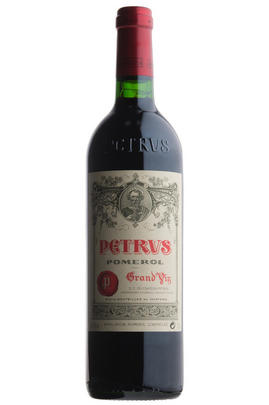
Critics reviews
Robert M. Parker, Jr. - 02/05/2011
The 2008 is destined to be one of the greatest Petrus’s ever made, ranking alongside the 1989, 1990, 1998, and 2000, and even eclipsing the 2005. An inky/red/purple color accompanies an unevolved, but promising nose of sweet red and black fruits intermixed with hints of earth, spice box, and caramel. It possesses a formidable personality of great intensity, awesome texture, amazingly well-integrated sweet tannin, and a freshness and precision that are hallmarks of this vintage. Given the tiny production, there will not be much of this sensational wine. Like most recent Petrus vintages, a decade of patience will be required despite the sweetness of the tannin. It should evolve for at least 50 years.
Robert Parker- Wine Advocate- April 2009
About this WINE
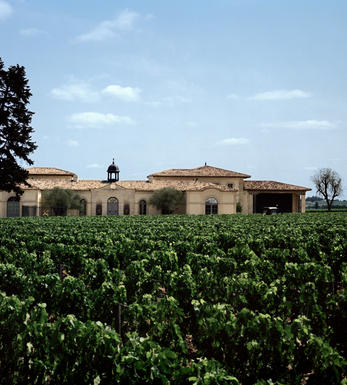
Petrus
Petrus is a wine estate in Pomerol on the Right Bank of Bordeaux. It is among the most celebrated and recognisable wines in the world.
While the estate can trace its history to at least 1837, it flew relatively under the radar until around the 20th century. Madame Loubat, who became the sole owner in 1945, felt that the estate was truly special, and her efforts were instrumental in establishing Petrus on the world stage. She also appointed Jean-Pierre Moueix as the exclusive agent; he and his sons Jean-François and Christian were key in building the estate’s modern reputation. The Moueix family became majority owners here in 1969. In 2018, they were joined by American-Colombian Alejandro Santo Domingo, who purchased a 20% stake.
Petrus is located atop the Pomerol plateau. Most of its vines sit on a so-called “buttonhole” of blue clay soil, known as smectite. This soil’s ability to retain water is a huge benefit in the Pomerol appellation, where drought is a known issue. The vineyard is planted mostly to Merlot.
The estate is run today by winemaker Olivier Berrouet, previously of neighbouring Château Cheval Blanc. Olivier joined in 2008, taking over from his father, Jean-Claude, who had produced 44 vintages of Petrus in his time.
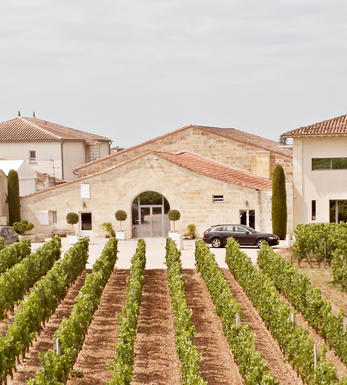
Pomerol
Pomerol is the smallest of Bordeaux's major appellations, with about 150 producers and approximately 740 hectares of vineyards. It is home to many bijou domaines, many of which produce little more than 1,000 cases per annum.
Both the topography and architecture of the region is unremarkable, but the style of the wines is most individual. The finest vineyards are planted on a seam of rich clay which extends across the gently-elevated plateau of Pomerol, which runs from the north-eastern boundary of St Emilion. On the sides of the plateau, the soil becomes sandier and the wines lighter.
There is one satellite region to the immediate north, Lalande-de-Pomerol whose wines are stylistically very similar, if sometimes lacking the finesse of its neighbour. There has never been a classification of Pomerol wines.
Recommended Châteaux : Ch. Pétrus, Vieux Ch. Certan, Le Pin, Ch. L’Eglise-Clinet, Ch. La Conseillante, Ch. L’Evangile, Ch. Lafleur, Trotanoy, Ch. Nenin, Ch. Beauregard, Ch. Feytit-Clinet, Le Gay.
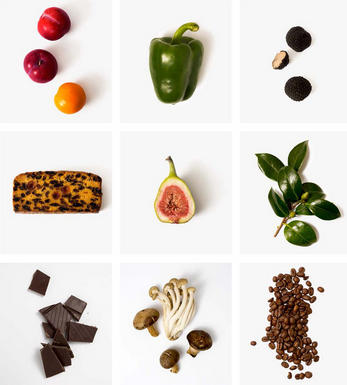
Merlot
The most widely planted grape in Bordeaux and a grape that has been on a relentless expansion drive throughout the world in the last decade. Merlot is adaptable to most soils and is relatively simple to cultivate. It is a vigorous naturally high yielding grape that requires savage pruning - over-cropped Merlot-based wines are dilute and bland. It is also vital to pick at optimum ripeness as Merlot can quickly lose its varietal characteristics if harvested overripe.
In St.Emilion and Pomerol it withstands the moist clay rich soils far better than Cabernet grapes, and at it best produces opulently rich, plummy clarets with succulent fruitcake-like nuances. Le Pin, Pétrus and Clinet are examples of hedonistically rich Merlot wines at their very best. It also plays a key supporting role in filling out the middle palate of the Cabernet-dominated wines of the Médoc and Graves.
Merlot is now grown in virtually all wine growing countries and is particularly successful in California, Chile and Northern Italy.


Buying options
Add to wishlist
Description
It is hard to call Petrus a sleeper of the vintage, but the 2008 will merit more attention than most consumers would think. Low yields of 30 hectoliters per hectare resulted in only 25,000 bottles of this beauty. A wine of great intensity (possibly the most concentrated wine of the vintage), this 100% Merlot boasts a dark purple color as well as a sweet perfume of mocha, caramel, black cherries, black currants, earth and forest floor. Deep, unctuously textured, full-bodied and pure, it will benefit from 4-5 years of cellaring and should drink well for 25-30+ years.
Robert M. Parker, Jr. - 02/05/2011
wine at a glance
Delivery and quality guarantee